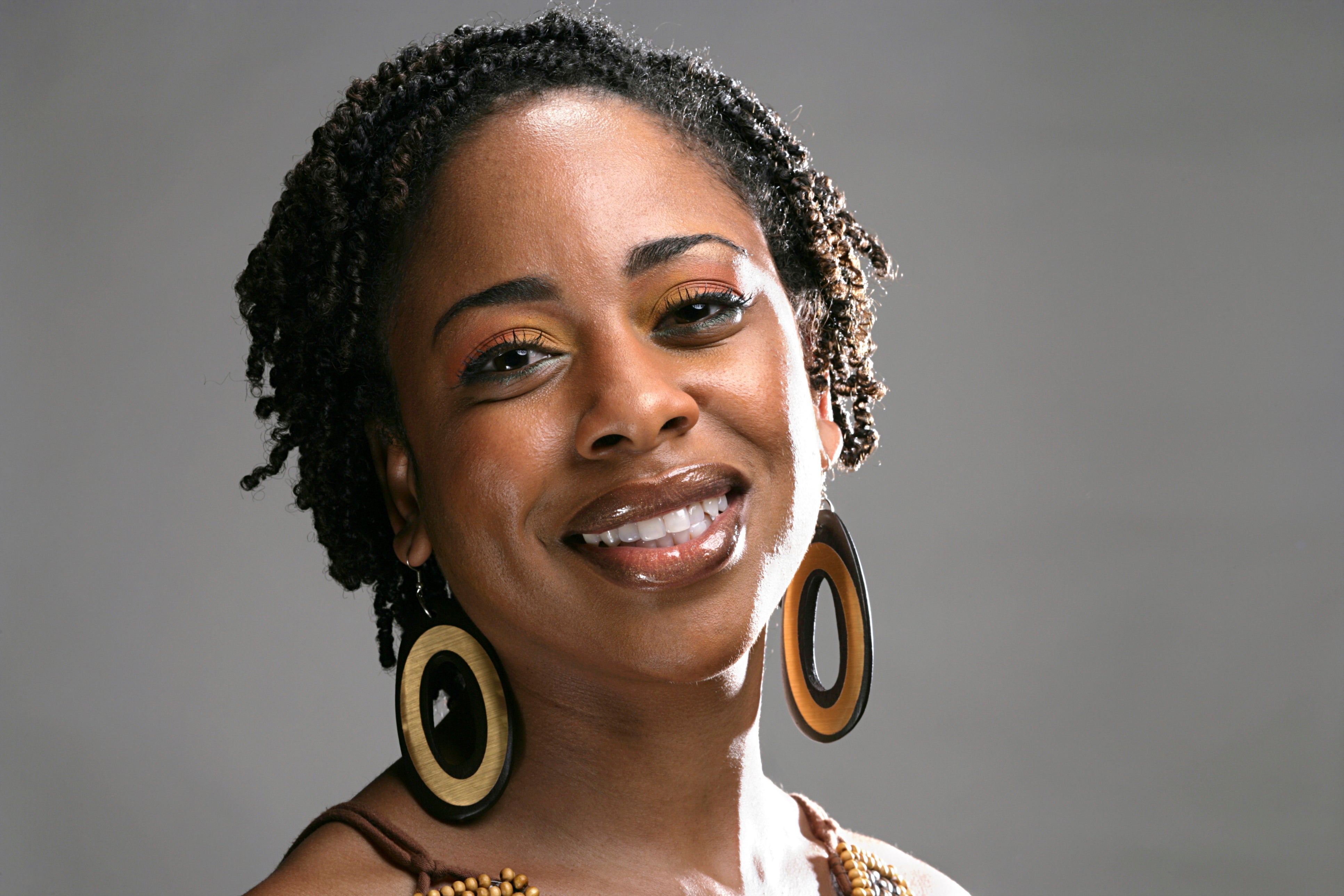
Our goal today is to learn how to do better with: 1. How we manage our anger when conflict arises 2. How we respond versus reacting to our feelings when hurt or offended, and 3. How to address our feelings with other Black women in ways that diffuse, resolve and properly work through conflict so that no one is left feeling damaged or unheard. Unresolved emotions can last a lifetime and hinder us from receiving so many other wonderful blessings in our lives. So, let’s walk this out together, let’s put our defenses down and let’s focus on how we can help one another get through this journey called sisterhood.
I want to briefly recap what we discussed in Part I and during our Twitter Chat #SistersHeal held last Sunday:
• Black women “appear” to be angrier than others because of our cultural “context” that often denies us the full range of emotions that others are freely allowed to express. If we get “angry,” we pay a heavy price because of the stereotype surrounding the “angry black woman.”
• Black women thus suppress their anger for fear of backlash. Unfortunately, when it does release it can be toxic to others because it has been simmering for so long. It unleashes in ways that are disproportionate to the perceived offense, and is often triggered by something much deeper lurking beneath the surface. We attack each other and feel justified doing so because we have adapted a mentality of “you, as a sister should know better.” In essence, we don’t allow one another to be human, make mistakes and express our feelings.
I spoke with four leading sisters who work in the area of personal coaching and spirituality to help us identify what’s truly ailing us, and how we can do better. The Rev. Jacquie Hood Martin is Certified Leadership/Christian Life Skills Coach, and Six Sigma Green Belt Managing Professional/Personal Conflict expert. She offered this insight about managing our emotions:
“The foundational key to managing anger, resentment, baggage and bitterness is acknowledging you actually harbor those feelings. Awareness helps you navigate toward the outcome you desire, or away from the outcome you don’t want. This is the bottom tier of managing your emotions before they manage you. Once you have that awareness you are closer to being able to master your emotions. Most of us are in denial about our weaknesses or secrets, but trust that your circle of friends, acquaintances and professional associates have already detected them. Sadly, most of us refuse to address these issues and we ultimately self-destruct.”
Author, Certified Professional & Executive Coach Valorie Burton breaks it down further like this:
“First let’s agree that our emotions are teachers. All of our emotions are the result of our thoughts. So be aware of your thoughts. Anger tells us that a boundary we have set or a value we hold as important has been crossed. So anger can be constructive when managed. Repressed anger is bad for the body and can lead to depression or serious illness. The Bible says, “Be angry and sin not.” Simply put: don’t allow your anger to become danger. When we find that we are dealing with people who have eruptions, or the anger is disproportionate to the offense. That is a “trigger.” That means they have unresolved issues, pain, wounds that they have not yet faced or dealt with in a healthy way.”
Pepperdine University Professor Dr. Thema Bryant-Davis is a licensed psychologist who spoke with me about why Black women have such a hard time facing our anger and working through it successfully:
“It must first be noted when talking about Black women and anger that anger is a healthy emotion and that the stereotype of Black women as too angry is often used to silence us around issues that deserve our outrage. There are some outrageous circumstances that Black women are forced to live with and live through. To deny that reality may make others more comfortable but it can kill us physically, emotionally and spiritually. We need to distinguish constructive anger from destructive anger. Constructive anger motivates positive action, change, growth and needed confrontation of issues. Destructive anger wounds, destroys, eats us up and can keep us stuck.”
Finally, Brand Identity Coach, former Celebrity Apprentice star and author Marshawn Evans put our anger issues into context like this:
“Self-identity is a key issue here that we don’t often discuss. We have two identities: The born identity and the created identity. The former is our pure self. Our undamaged, non-angry, unbroken self. The latter is the self that has been shaped by our life experiences good or bad. We use it to protect ourselves. The way we “show up” in life is based on our experiences in life, which create who we are. There are three types of people when it comes to managing conflict: 1. Those who are not interested in finding peace. 2. Those who wrestle with being peaceful. 3. Those who are interested in self-discovery, and who are searching for ways to be peaceful.”
What all four of these sister experts shared with me boil down to this: a.) Consider how your personal life experiences may negatively shape your emotional reactions, b.) Be honest about whether or not you have an anger problem, or unresolved pain you need to address, c.) Ask yourself if you are in denial about what everyone else already knows is true (e.g., Kim erupts on people for the smallest things, or Kim has not dealt with her childhood abuse and she in turn abuses others).
I want to end this series by mapping out some concrete strategies that we can put into action in our individual lives, and in our relationships that will help us to keep our anger in check, keep our friendships thriving, and allow us to heal so that we live fulfilled across the board.
Strategy #1: Identify what is eating you (for real):
• Be aware of your thoughts because they control your actions. (Burton)
• Are you an iceberg (meaning what we see on the surface is not all that lurks beneath)? Do you have some hidden things that you need to talk out, heal a childhood scar, forgive a parent, need therapy? (Burton)
• Owning your baggage means exercising personal leadership over your life. Accountability and responsibility are two words often replaced with phrases like “they did it,” or “somebody else made me do it.” Sadly, you have made you into the sad, insensitive, self-absorbed person you are. When we don’t own our baggage, and take responsibility for our life, we run the risk of continually hurting others and ourselves. I hear this term more often than I care to: “Hurting people hurt other people.” In our sisterhood, it is time to put the nonsense to rest once and for all. (Martin)
Strategy #2: Know how to effectively handle conflict
• Do not confront people in anger. Confrontation is not conversation. A conversation is a mutual exchange that takes place with a goal of a constructive outcome. (Dr. Thema)
• Learn to respond, not react. Responding means you are in control of the outcome you would like to see. Reacting is a wild card. It is a trigger for uncontrolled emotion and words. (Burton)
• See the other person not their offense. Be affirming versus condemning. Believe that your friend is a good person, not a bad one because they made a mistake. Be in control of you, and don’t let your anger act like a missile with serious relational damage. (Evans)
• Get quiet. Get honest. Own your feelings. (Burton)
• Anger is an internal emotion that is dealt with in an outward manner. Biblically speaking, we are to talk to our sister if she has offended us and if or when she refuses our conversation or counsel we are to take two or three more with us to try and work it out (Matthew 18:15-17). The onus is on the offender to come clean. (Martin)
• Mature women know how to fight fair. Their purpose is to express their feelings without trying to dismantle or crush the other person. It is also helpful to bring things as they happened; when we let things pile up we create more problems because now “small things” are building up over time. It is important when dealing with conflict with our friends that we own our part. Be willing to acknowledge and apologize for any part you have played in a conflict. (Dr. Thema)
Strategy #3: Is this sister relationship worth saving – How will I know?
Finally when trying to decide if a friendship is worth saving ask yourself the following:
• A. Have our good times outweighed our bad times?
• B. Do I honestly believe this person cares about me?
• C. What are the chances that I believe this will continue to happen?
• D. Do we both want to work it out? What is my part in what went wrong here? Have I been the best friend, have I been honest, have a really done my best to make this be all it can be?
• E. Have I started a pattern that means I cut off everyone when they get too close or when they express an opinion that is different from mine? (Dr. Thema)
Sophia A. Nelson is a contributor to Essence.com and is an award winning author of the book “Black Woman Redefined: Dispelling Myths and Discovering Fulfillment in the Age of Michelle Obama,” to be re-released in paperback Fall 2012.





